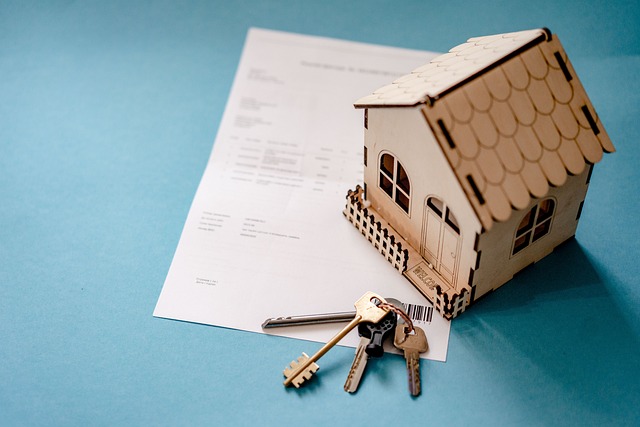Business Property Coverage is a critical element of any robust business insurance policy, protecting against physical damage or loss to commercial assets like buildings, structures, equipment, and inventory. While essential for financial security in unforeseen events (fires, storms, vandalism), it's crucial to understand policy exclusions, such as specific natural disasters, employee theft, or maintenance issues, to tailor coverage effectively. Comprehensive Business Insurance is indispensable for small businesses, offering peace of mind, minimal disruption to operations, and repair/replacement costs for damaged assets. It aids in quick recovery, promotes operational continuity, and demonstrates foresight for long-term success. Understanding specific business needs, assessing asset vulnerability, researching providers, and choosing policies with adequate coverage and liability protection are key steps. Real-world case studies highlight the practical benefits of Business Insurance in mitigating risks and ensuring resilience across sectors. Proactive evaluation of industry-specific risks, including property damage, liability claims, and cyberattacks, is vital for tailored policy customization and sustained business growth. Emerging trends in technology (AI, machine learning) and sustainability (eco-friendly designs) further enhance risk assessment and policy customization.
“Uncover the essence of robust business protection with comprehensive property coverage. This article navigates the intricate world of business insurance, equipping entrepreneurs with vital knowledge. From comprehending crucial covers and exclusions to recognizing the impact of various damage types, we demystify the claims process. Learn why this insurance is indispensable for small businesses and how to choose the ideal policy. Explore real-world case studies, avoid common pitfalls, and discover trends shaping future business property insurance landscapes.”
Understanding Business Property Coverage: What It Covers and Exclusions

Business Property Coverage is a crucial component of any comprehensive business insurance policy. It protects against physical damage or loss to your commercial property, including buildings and structures, equipment, inventory, and other assets. This coverage is essential for safeguarding your business’s financial stability in the event of unforeseen disasters such as fires, storms, or vandalism.
However, it’s important to be aware of exclusions within Business Property Coverage policies. These exclude certain types of damage or events, like natural disasters that are specifically mentioned, theft by employees, or loss due to failure to maintain coverage. Understanding these exclusions is vital for ensuring your business insurance policy aligns with your specific needs and provides the right level of protection against potential risks.
Why Business Property Insurance Is Crucial for Small Businesses

For small businesses, Business Property Insurance is more than just a safety net; it’s an investment in their future and resilience. It protects against unforeseen events that could cripple operations, such as natural disasters, vandalism, or fire. This coverage ensures that businesses can continue to operate with minimal disruption after a loss, helping them maintain stability and meet financial obligations.
Moreover, Business Property Insurance provides peace of mind by covering the costs of repair or replacement for business property, inventory, and equipment. It safeguard’s against not just physical damage but also losses due to theft, storms, or other perils, enabling small businesses to focus on growth rather than recovery. In today’s competitive landscape, ensuring comprehensive Business Insurance is a strategic move that demonstrates foresight and commitment to long-term success.
Different Types of Property Damage and Their Impact on Claims

Business property coverage is tailored to protect against various risks, and understanding different types of property damage is crucial for businesses navigating claims processes. From natural disasters like floods and hurricanes to man-made incidents such as vandalism and theft, each event can have distinct impacts on a business’s operations and financial health. For instance, water damage from heavy rainfall or plumbing issues can lead to significant downtime, requiring repairs and replacements of essential equipment and inventory.
Fire damage, another common concern, can result in the complete loss or severe deterioration of property, assets, and even irreplaceable business records. In contrast, wind damage from storms might primarily affect structural integrity, while cyberattacks can cause substantial financial losses due to data breaches and system failures, highlighting the evolving nature of risks businesses face. These varying scenarios underscore the importance of comprehensive Business Insurance policies that cater to specific needs, ensuring businesses can recover and continue operations without undue interruption.
Navigating the Insurer's Role in Business Property Claims Process

Navigating the insurer’s role is a critical aspect of the business property claims process. When a covered loss or damage occurs, business owners should understand that their insurance provider plays a pivotal part in guiding them through the recovery journey. The insurer assesses the claim, determines coverage eligibility based on policy terms, and facilitates repairs or replacements. They act as a reliable partner, ensuring business continuity by providing financial support and resources for restoration efforts.
Effective communication between the business owner and the insurer is key. Owners should promptly report claims, offering detailed information about the incident and its impact on their property. The insurer’s role extends to guiding owners through documentation requirements, appraisals, and settlement negotiations. By understanding their rights and responsibilities under the policy, businesses can ensure a smoother claims process, ultimately aiding in their recovery and resilience.
How to Choose the Right Business Property Insurance Policy

When selecting a business property insurance policy, understanding your specific needs is paramount. Begin by assessing the value of your physical assets, including buildings and equipment, as well as their vulnerability to common risks like fire, theft, or natural disasters. Consider the operational continuity of your business and choose coverage that replaces or repairs damaged or stolen items promptly, ensuring minimal downtime.
Research different insurance providers and compare policies based on scope of coverage, deductibles, and exclusions. Opt for a policy that includes adequate liability protection to shield your business from claims related to property damage or personal injury on your premises. Additionally, evaluate the need for additional coverages such as business interruption, which can provide financial support during periods of temporary closure due to insured events.
Case Studies: Real-World Examples of Successful Business Property Claims

In the dynamic landscape of business insurance, understanding the real-world applications of coverage can be enlightening. Case studies offer tangible examples of how robust Business Insurance policies have mitigated risks and protected businesses in diverse sectors. For instance, a retail store faced a significant challenge when a fire broke out during off-peak hours, causing substantial damage to the building and its inventory. Thanks to comprehensive Business Property Coverage, they were able to swiftly file a claim, ensuring swift reimbursement for rebuilding costs and stock replacement. This enabled them to reopen within weeks, minimizing downtime and financial loss.
Another compelling example involves a tech startup whose office was struck by severe weather, leading to flooding and subsequent water damage across multiple floors. Their Business Insurance policy, which included coverage for both physical damage and business interruption, played a pivotal role in their recovery. The insurer facilitated repairs and offered financial support during the temporary relocation period, allowing the startup to resume operations without significant disruption. These scenarios underscore the invaluable role of tailored Business Insurance in safeguarding businesses against unforeseen events, ultimately contributing to their resilience and long-term success.
Common Mistakes Business Owners Make When Dealing with Property Damage

Many business owners, despite their best intentions, fall into common traps when dealing with property damage. One major mistake is neglecting to review and understand their Business Insurance policy. Every policy is unique, and specific coverage may vary widely between providers. Owners should be familiar with the types of damages covered, deductibles, and any exclusions to ensure adequate protection. Ignoring these details can lead to unexpected financial burdens when filing a claim.
Another error is failing to document and mitigate damage promptly. In the aftermath of an incident, business owners should take immediate steps to protect the property and gather evidence. This includes taking photos, keeping records of repairs or replacements, and contacting relevant authorities if necessary. Quick action not only helps in the claims process but also ensures minimal disruption to business operations during recovery.
Enhancing Your Business Continuity Plan with Comprehensive Coverage

In today’s unpredictable business landscape, having a robust Business Insurance plan is more crucial than ever for ensuring sustained growth and stability. Comprehensive coverage acts as a shield against unforeseen events that could disrupt operations, causing significant financial loss. By meticulously crafting a business continuity plan complemented with adequate insurance measures, companies can minimize downtime and navigate through crises with resilience.
This proactive approach involves evaluating potential risks specific to your industry, such as property damage, liability claims, or cyberattacks. Tailoring your Business Insurance policy to address these risks ensures that you’re prepared for any eventuality. With the right coverage in place, businesses can focus on growth strategies, knowing they have a safety net in times of uncertainty.
Future Trends in Business Property Insurance: What to Expect

The ever-evolving business landscape presents unique challenges and opportunities, and this trend is no different in the realm of property insurance. As we move forward, several future trends in business property insurance are poised to shape how businesses protect their assets.
One notable shift is the integration of advanced technologies such as artificial intelligence (AI) and machine learning to assess risks more accurately and predict potential threats. This enables insurers to offer tailored policies that cater to individual business needs. Additionally, there will be a greater emphasis on sustainable building practices, with insurance providers offering incentives for businesses adopting eco-friendly measures. Green buildings are not just a trend but a necessity, driven by both regulatory changes and consumer preferences, and they play a vital role in mitigating risks associated with environmental disasters.
